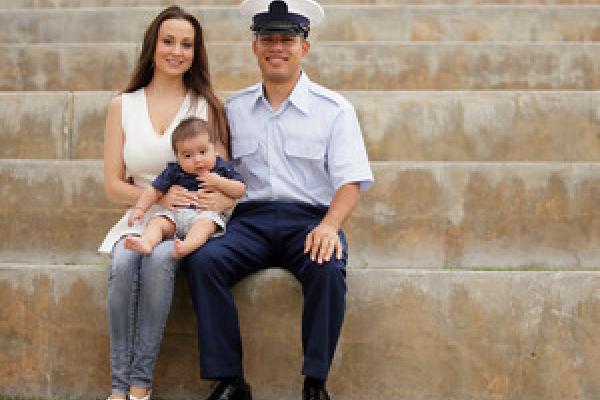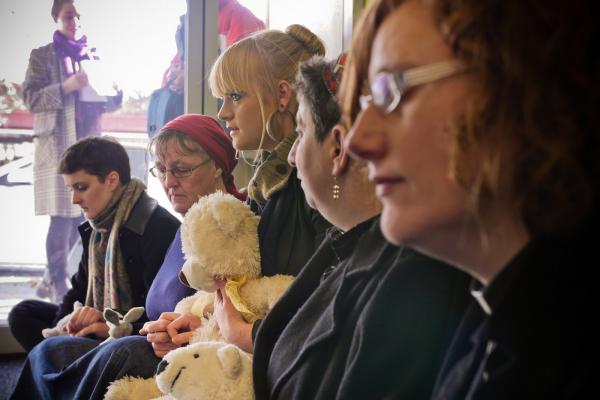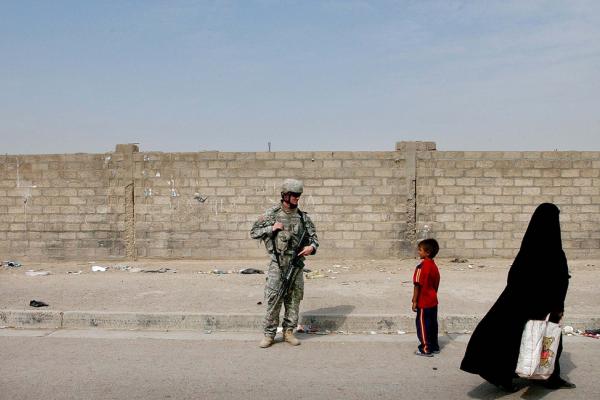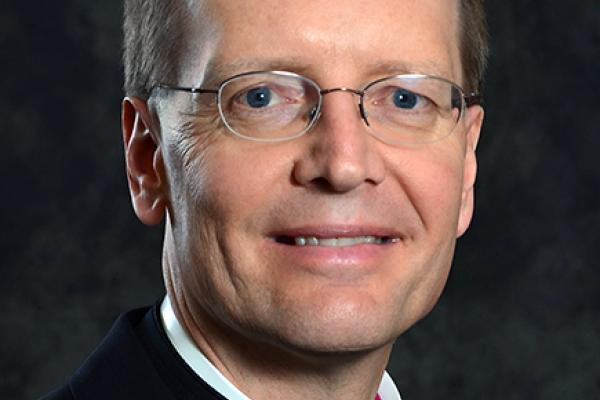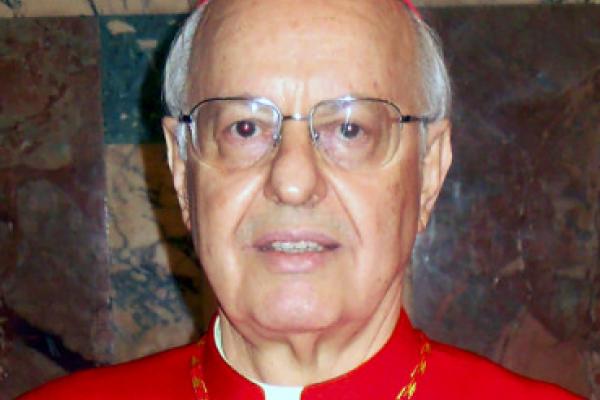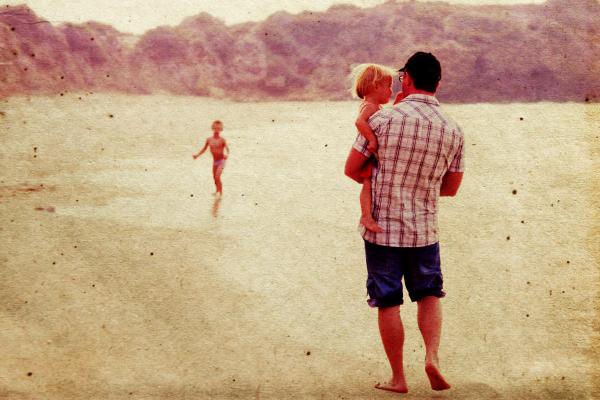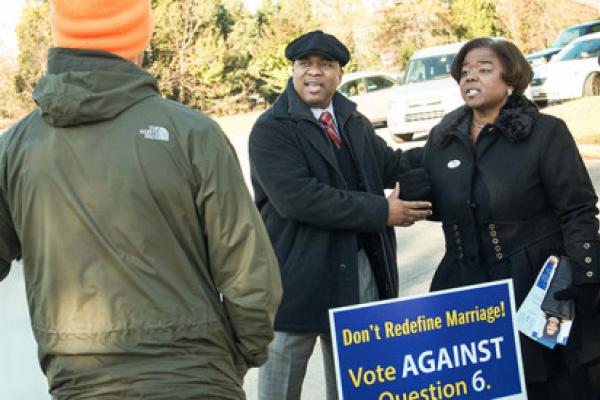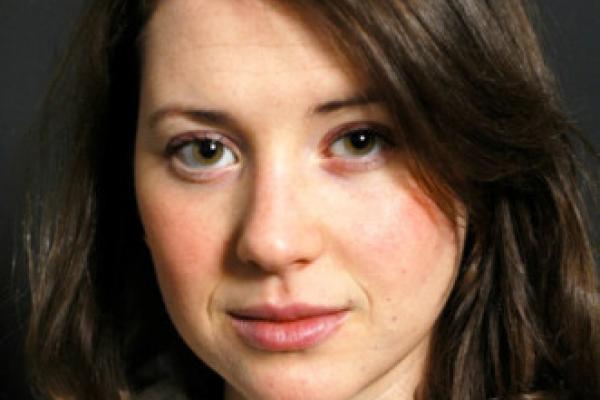There are two prevalent ways that we contribute to or allow the sacrifices of our daughters and sons in contemporary U.S. society. One, the numbers of individuals, especially children and youth, who are killed through gun violence each year. Two, veterans and their families who are not receiving the adequate and timely care and support they deserve. Both these forms of sacrifice have become so normalized as part of U.S. culture that it has become easy to overlook them or to call something else.
“We will not only win victory for ourselves; we will appeal to your heart and conscience that we will win you in the process and our victory will be a double victory.” – Martin Luther King, Jr.
Four years ago I was working a corporate job for a national AFL team. It was well paid. I had great opportunities. Life was good. If you had told me that I was going to become a Christian, I would have laughed in your face. If you had gone on to say I would leave my well-paid job to spend my days running a Welcome Centre for refugees while working side jobs to make ends meet, I would have questioned your mental health. If you had added that I would be arrested with church leaders and a rabbi while continuing Martin Luther King’s work, it would have certified to me that you were crazy.
On Monday I walked into Austrailian MP Jamie Briggs' office to be arrested with seven Christian leaders and a rabbi. It sounds like the start of a joke. (My life is teaching me God has a great sense of humor.)
Why were we arrested? There are 983 children and their families currently in Australia’s detention centers.
These children are kids just like our own, with their made-up games, whispered jokes, and giggles. Their families dream of a future of safety. Our incoming Governor of South Australia, Hieu Van Le, arrived by boat in Darwin seeking refuge 36 years ago, with “nothing but a suitcase filled with invisible dreams. A dream to live in a peaceful, safe and free country and to live a meaningful and fulfilling life.” In the past, Australia has been the kind of nation that grants dreams like this – why not for the 983 future Hieu Van Le’s and their families in detention?
A world away and so many years later, how is Martin Luther King’s freedom movement related to the current plight of asylum seekers in Australia? Well, the links are stronger than you think.
America is stunned by what is happening in Iraq right now, and happening so quickly. We may be facing the worst terrorist threat to international security so far — despite all we have done and sacrificed. Both our political leaders and media pundits are admitting there are no good options for the U.S. now. But there is an option we could try for the first time: humility. Let me turn to two biblical texts that might provide some wisdom for both the religious and non-religious.
If your enemies are hungry, feed them; if they are thirsty, give them something to drink; for by doing this you will heap burning coals on their heads. Do not be overcome by evil, but overcome evil with good. (Rom. 12:20–21)
Blessed are the peacemakers, for they will be called the children of God. (Matthew 5:9)
All nations use propaganda to tell half-truths and spread misinformation about their enemies, which should be honestly challenged. Even so, it is also true that we have real enemies in this world, as individuals, groups, and nations. To assume otherwise is foolish, from the perspective of history, certainly, but also in light of good theology about evil as part of the nature of the human condition. According to the Bible, even our faith communities will encounter enemies. Jesus’s teaching assumes that we will have enemies, and he teaches us how to treat them. In the passages above, Jesus and Paul the Apostle offer guidance for more effective ways of dealing with our enemies. It seems to be clear that our habit of going to war against them is increasingly ineffective. For the past several years, we have found ourselves in a constant state of war with “enemies” who are very hard to find or completely defeat.
Despite numerous controversies over dismissing gay Catholics from church posts and the U.S. hierarchy’s campaign against same-sex marriage, Catholic leaders have carefully, if quietly, avoided doing anything to block gay couples from having their children baptized.
But a move by a bishop in Wisconsin to route all such decisions through his office is raising questions about whether that neutral zone will now become another battleground, and whether the growing acceptance of gay parents will inevitably draw more attention to this practice and force church leaders to establish clearer rules.
The default position for most bishops — reiterated in a major Vatican document released on Thursday — is that if the parents pledge to raise the child Catholic, then no girl or boy should be refused baptism.
Faced with a cultural landscape that’s shifting faster than the church’s ability to keep up, Catholic bishops are looking for new approaches toward unmarried couples, divorced people, and single parents who are disillusioned with the church.
The first-ever survey of 114 bishops’ conferences around the world found that many Christians “have difficulty” accepting church teachings on key issues such as birth control, divorce, homosexuality, and cohabitation.
But one senior church leader cautioned that “the doctrine of the church is not up for discussion.”
The survey’s findings, released in a 75-page document by the Vatican on Thursday, will serve as the blueprint for October’s Synod of Bishops, when bishops from around the world will gather to discuss issues facing the family.
I have two daughters.
They are little spark plugs of utter joy and complete chaos. They make me laugh. They make me cry. They remind me to view the world through childlike wonder. They remind me that I am not what I do, but who I am. They teach me what selfless love actually looks like … every day … day after day … early morning after early morning … nasty crap diaper after nasty crap diaper. They make me realize how much I have to learn about parenting and our place in the world.
Most every night from the moment they were born, I have quietly held them in my arms or rested my hand on their backs while they sleep and prayed for them.
I pray for their continued breath. I pray for their development as little, unique human beings. I pray the Spirit of God to fill them and empower them. I pray the Lord’s Prayer over them. I pray for them to be protected from evil. I pray for them to love those who aren’t often loved. I pray for them to live confidently into who they have been created to be, free from the pressure of imposed reputation and expectation.
I pray for their past, present and future.
In learning to love these little girls, I began to ask more and more questions about the place of women in the world, in the church, and in everyday life.
Yoruba Richen’s documentary “The New Black” airs this month online and on television through the PBS series “Independent Lens.” The film, which explores the intersection of race, religion, and sexuality, also has been screened at Chicago’s Trinity United Church of Christ and New York’s Union Theological Seminary. An African-American lesbian, Richen talked to Religion News Service about the new openness she sees in black churches around the issue of same-sex marriage.
A Sudanese Christian doctor freed from death row on charges of apostasy Monday is not yet free after authorities detained her at a Khartoum airport.
She was apprehended along with her husband, Daniel Bicensio Wani, an American citizen of South Sudanese origin, and their two children — 20-month-old son Martin and a 1-month-old daughter.
Just because interfaith, interracial, and varied ethnic groups share a common cause doesn’t mean a diverse coalition can hang together.
It often takes prayer. And not just a “Bless this group, Amen,” invocation.
A new study by three sociologists finds that three out of four interfaith civic coalitions turn to what the sociologists have dubbed “bridging prayer” — interactive, participatory, and often innovative prayers and rituals that highlight their shared identity as people of faith.
A few weeks ago, my father was hospitalized for heart attack symptoms that might have been stroke symptoms that then turned out to be symptoms of something utterly inexplicable. My father, who suffered a massive heart attack in January 2009, and, against all odds and by the grace of God (he flat-lined twice), went on to survive subsequent surgeries and procedures and scares — always against all odds and by God’s grace. Though my father continues to survive and in many ways thrive, every hospitalization is a reminder that life is precious and short and tomorrow is not guaranteed to us.
This development has left me crying out to God, “Why? I know you don’t have to answer that, but … why?” This question reveals my heart: despite having known real and intense suffering in my life, I still live under the illusion that it is not normal. It’s been commonly reported, discussed, and parodied that those of us in the west, particularly in America, have no concept of how to deal with suffering. For many of us, even minor inconveniences — those “first world problems” like slow Internet access or traffic — feel like suffering in a relatively peaceful and easy world.
But as a Christian, I’m confronted by Scripture that reminds me that suffering will be part of our lives. And I’m confronted by the tendency — which I am sure that I share with many of my sisters and brothers — to shun it, preferring Gospels without suffering instead.
